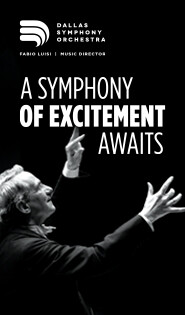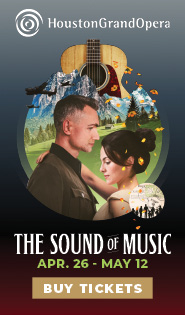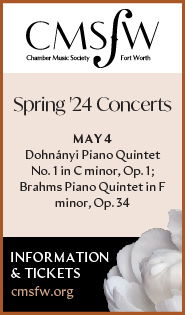Zukerman & Forsyth bring charm to light Dallas Symphony program

After a tumultuous couple of weeks, with performance cancellations and program alterations due to an ice storm and Covid cases among the musicians, it was a relief to finally attend a Dallas Symphony Orchestra performance that was exactly as billed.
That said, Thursday’s night’s concert offered a fun-sized program with just over 40 minutes of music, clocking in at about twice that with intermission and stage changes.
Featuring violinist and conductor Pinchas Zukerman, and his wife, cellist Amanda Forsyth, the evening included no warhorses, but instead a miscellany of little jewels: Vivaldi’s Concerto for Violin and Cello in B flat major (RV 547), Offenbach’s Les larmes de Jacqueline (“Jacqueline’s Tears”), Tchaikovsky’s Mélodie and Sérénade mélancolique, and Haydn’s Symphony No. 83 “La Poule” (“The Hen”).
While the Dallas Symphony is certainly not a stickler for authentic Baroque performance practice, their Vivaldi sparkled, and Forsyth and Zukerman are charming as duo musicians. The one nod to traditional practice is that Zukerman conducts while playing, which works just fine in this repertoire. The outer fast moments were crisp and lively, the inner slow movement was well-crafted.
But it was separately that they truly excelled.
The iconic recording of Jacques Offenbach’s Jacqueline’s Tears,one of three short pieces for cello and orchestra collectively known as Harmonies des bois, is by Jacqueline du Pré. Forsyth’s performance was comparable, drawing a lush, hall-filling sound from her Testore cello. Offenbach, a cellist himself, wrote skillfully for the instrument, with a surefooted sense of line and a deep understanding of technique. Forsyth made the most of the possibilities of the piece, with thoughtful phrasing, flawless intonation, and a just-right vibrato that coalesced into a moving, musical whole.
Zukerman’s solo turn came with the two short pieces by Tchaikovsky, usually played as encores. Both the Mélodie and the Sérénade mélancolique are lyrical, and neither is virtuosic or flashy, but they served to show that–unlike some other violinists of his generation—at 73 Zukerman has maintained his musical chops. The gorgeous sound and faultless intonation he was known for forty years ago is still manifest.
Zukerman conducted here, too, in a manner of speaking, waving his bow a bit in the rare moments when he wasn’t playing. This strategy works better for Baroque and Classical repertoire than it does for Romantic works with their larger orchestras; still, the Dallas Symphony kept it together, with generally exemplary ensemble under the circumstances.
Historically, the DSO has not always excelled at Classical repertoire, but their rendition of Haydn’s Symphony No. 83 show that those days seem to be behind them. The first movement, with its charming “chicken” theme, was crisp, precise, and lively. The Andante, and, surprisingly, the third movement Menuet dragged a bit, but all was redeemed by the sparkle of the final Vivace, which zipped along at a rollicking pace.
When Zukerman focuses on just one thing—here, conducting—he does it well, and he drew a fine sound from the orchestra. The first violins were particularly tight, with generally excellent playing from the ensemble.
If the goal of any concert is to leave the audience wanting more, this program certainly delivered.
This program will be repeated 7:30 p.m. Friday at Caruth Auditorium on the Southern Methodist University campus. For tickets, visit https://bit.ly//MeadowsTix


